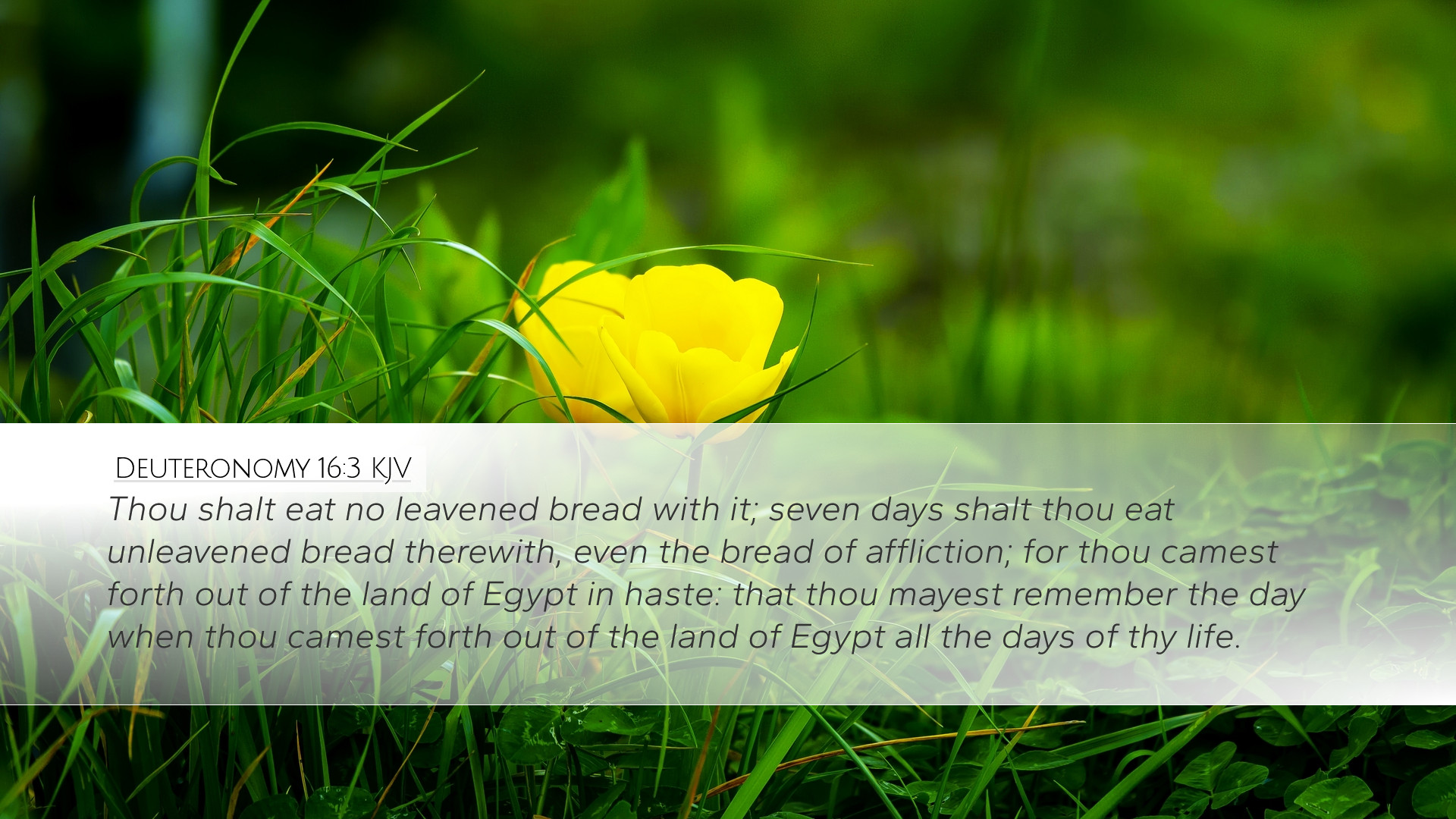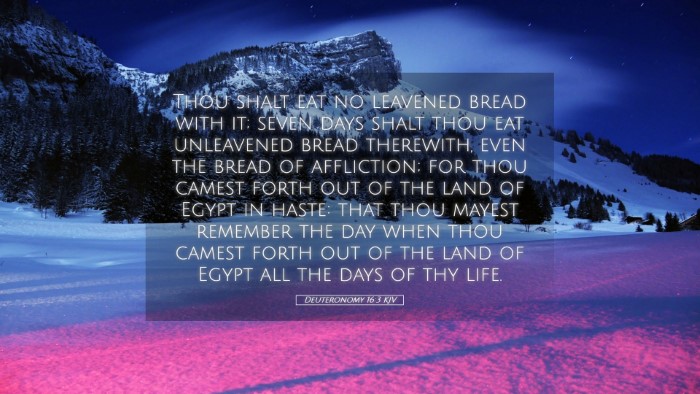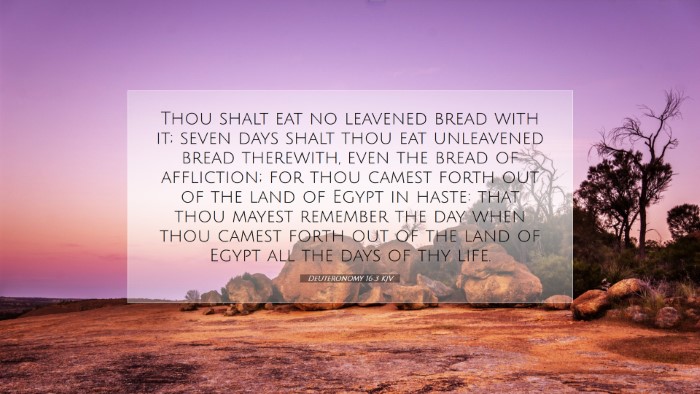Commentary on Deuteronomy 16:3
Verse Text: "You shall eat no leavened bread with it; seven days you shall eat unleavened bread with it, the bread of affliction, for you came out of the land of Egypt in haste, that all the days of your life you may remember the day when you came out of the land of Egypt."
Introduction
The verse in Deuteronomy 16:3 holds profound significance in the spiritual and communal life of Israel. Various aspects surrounding the meaning of unleavened bread and the Passover offer deep insights for contemporary readers, especially for pastors, students, theologians, and Bible scholars.
Historical Context
The commandment for Israel to avoid leavened bread during the Feast of Unleavened Bread ties back to their Exodus from Egypt. This pivotal event is foundational not only for Jewish identity but also for a broader understanding of salvation in a Christian context.
The Significance of Leaven
Matthew Henry notes that leaven often symbolizes sin and corruption. In the New Testament, Christ warns against the “leaven of the Pharisees” (Matthew 16:6), indicating that the avoidance of leaven during the Passover is a call for purity and holiness.
Understanding 'The Bread of Affliction'
Albert Barnes refers to “the bread of affliction” as a reminder of the hardship faced by the Israelites in Egypt and as a symbol of humility. This acknowledgment is meant to instill a sense of gratitude and awareness of God’s delivering power.
Theological Implications
This verse invites a meditation on the nature of salvation and the importance of remembrance in the Christian tradition:
- Memorialization of Deliverance: The act of consuming unleavened bread during this feast acts as a physical reminder of their liberation.
- Identity Formation: The observance fosters collective memory and identity, which Rosenberg highlights in his thoughts about community and cultural practices among ancient, as well as contemporary, believers.
- Faith and Obedience: The directive serves as an excellent example of how faith manifests through obedience to God’s commands, a principle echoed in the writings of Adam Clarke.
Application for Today
For modern congregations, the implications of this directive can be woven into various themes of worship:
-
Reflection on Redemption:
As Christians partake in Communion, they are reminded of Christ’s sacrifice, drawing a parallel to the Passover’s essence of deliverance and freedom from sin.
-
Spiritual Purity:
The concept of removing leaven extends beyond bread. It encourages believers to examine their lives for elements that may compromise their spiritual integrity.
-
Cultivating Gratitude:
As the Jewish community recalls their journey from bondage, Christians should be inspired to reflect on their own spiritual journeys, reminding them of the grace and mercy they have received.
Concluding Thoughts
Deuteronomy 16:3 encapsulates profound truths about remembrance and identity that transcends time. The avoidance of leaven symbolizes a broader spiritual truth about holiness and purity that remains relevant for today’s believer. By understanding the historical and theological significance of this verse, congregations can grow deeper in their faith and their appreciation for the narrative of salvation proclaimed in scripture.


